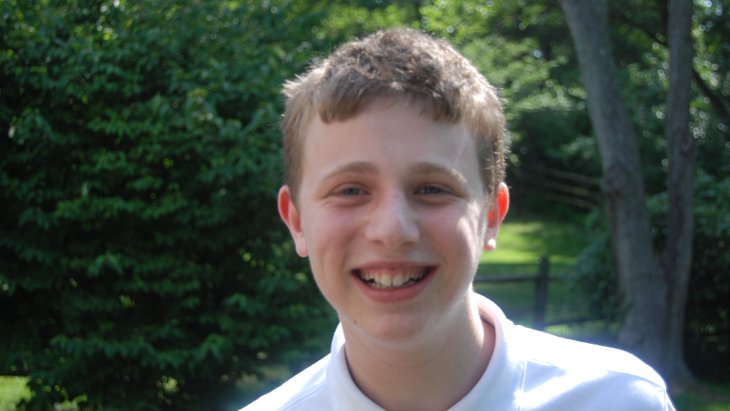 Iran’s Attack on Israel
Iran’s Attack on Israel


4 min read
As a pediatrician for many families with children on the autism spectrum, I thought I knew what it entailed to raise an autistic child. How wrong I was.
“What’s seven plus four?”
“Eleven?” I answer cautiously.
“What’s eight plus three?” my nephew Jason fires at me.
“Eleven?” I reply curiously.
“What’s six plus four?” Jason squawks.
“Ten!” I retort, starting to feel quite impressed with myself.
Jason paces, excitedly, as my daughter, Hadassah and I gingerly set foot in the entryway of his home.
His excitement is marked with more math problems. Seven plus two. Eight plus five. Nine plus four. Back and forth.
Animated and energized, Jason paces.
“Who is your drama teacher?” Jason barks.
As my eyes widen and my shoulders start to shrug, ever so slightly, Jason gets louder and more urgent.
“WHO IS YOUR DRAMA TEACHER?”
My sister-in-law, Andrea, gently intercepts: “He wants you to ask him who HIS drama teacher is,” she explains.
“Oh! Jason, who is your drama teacher?” I ask.
“MISS LORI!” he sings as he prances into the kitchen, whooping excitedly.
My nephew Jason is autistic. He is 17 years old; the same age as my oldest daughter.
I don’t get to see Jason very often, since he lives with his parents in Maryland. In fact, it’s been many years since I’ve spent any meaningful time with him. Travel is impossible for Jason. Any change in routine upsets him tremendously. My brother, David, and his wife, Andrea, have introduced Jason to each of my children through family photographs. Jason has learned to recite the names of each of his seven cousins. And though it has been a while, he knows I am his “Uncle Mike.”
David and Andrea welcome me and Hadassah into their dining room. We only have two hours before we have to head to the airport – not a particularly long time to enjoy getting reacquainted with family. But as we settle into our seats, it becomes increasingly clear that our two hours together won’t be about reacquainting ourselves at all. David and Andrea don’t have that luxury. Jason needs constant supervision. And since there are visitors in his home, Jason also needs extra coaching and redirection; new people make him agitated and upset at times, and his parents have to work extra hard to reassure and calm him.
Jason, a tall and strikingly strong young man, spends the entire two hours cycling between the dining room, kitchen and playroom. Barking, chanting and whooping. Back and forth. In and out. Round and round. Loud and strong. On and on.
And I watch. I watch David and Andrea, who aren’t afforded more than just a few moments at the table. I watch as Jason yells and screams and pushes and paces. I watch David and Andrea’s hugs and gentle touches. I watch their calm and caring demeanor. I watch their patience. I listen to their soothing words. And I am in deep, indescribable awe.
I am not new to parenting, or noise, or chaos.
My wife and I have seven children, four of whom still live at home.
And I am a pediatrician. I am surrounded with crying babies, angry toddlers and anxious parents. Day in and day out.
I care for many families with children on the autism spectrum and up until now, I managed to fool myself into thinking I was on the front lines with these families; that somehow, I basically knew what it entailed to raise a child with autism.
We can never understand another’s challenges, nor can we judge how they react to, are consumed by, or work to overcome these challenges.
But after two hours with Jason, I am humbled at how wrong I was. And, I have to be honest, that after those two very long hours, I couldn’t wait to leave. And I couldn’t help but admit to myself that I would be too selfish and impatient and intolerant to survive Jason, if he were my child.
Yet somehow, my brother and his wife don’t just survive Jason, they parent him… actively and intentionally. They lead with empathy and love and kindness. They lead with smiles and caring. They lead with: “Who is your drama teacher, Jason?” and, “What’s eight plus four, Jason?” and, “Who loves you more than anything, Jason?”
Somehow, Jason got the parents he needed. And I got the perspective that I needed to help me understand the families I serve: the perspective that we can never understand another’s challenges, nor can we judge how they react to, are consumed by, or work to overcome these challenges.
But we can observe those who are more patient, more kind, and more selfless than ourselves, and we can learn from their greatness.
